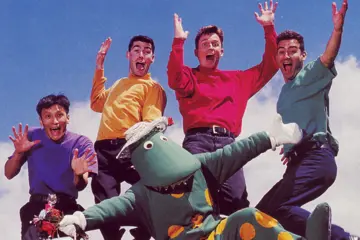There is a friction between the archaic and the arcane in Krapp (Jonathan Biggins) sitting at his desk eating bananas and listening to a tape recording of himself from 30 years prior. Here is a man, ineffectual and stiff, sitting among tapes and garbage, backed by tall filing cabinets in disrepair. These materials conjure the past in the best way we can — imperfectly compartmentalised and unideal, despite our best intentions. Brian Thomson AM, Lucy Hughes, and Colin Emmerton’s efforts to create this setting are essential to the audience’s enthusiastic participation in Krapp’s world.
Gale Edwards directs Beckett’s 50-minute one-man-show for Red Line Productions. As a crucial mainstay in Sydney’s independent theatre, a Beckett starring Biggins is a big drawcard for the season’s end. Its programming mixes the promise of tickets and the chance to test an audience with a singular and focused classic of the absurd.
The play has obvious themes: ageing, regret, life’s monotony realised. And there is more. But it is not so easy to put into words. Beckett’s interest is in bread and butter. Soufflé is wanton. The bigger the word one tries to use to articulate it, the further away one gets. Words, while necessary, are often wanton too. Krapp mocks the verbosity of his past self that he listens to on the tapes. "Viduity?" he scoffs. He takes out a dictionary from one of the filing cabinets and looks it up. Viduity: the state of being or remaining a widow. "Ha!" He scoffs again at his lurid younger self. He knows better now, surely. But for all his sardonic defences, the tape from "box three, spool five" undoes him. Therein is not only the ambition of a younger man but a touch of sentimentality. We watch the undoing of an older man by his younger self, and we wonder whether our best years lie ahead or behind us. Have we earned years that might be considered our best?
At lights down, the audience’s applause held off for weighty seconds. Cynical, of great repute, and reasonably pretentious to some, the audience is enraptured by Beckett and Biggins in Krapp’s Last Tape.
Don't miss a beat with our FREE daily newsletter















